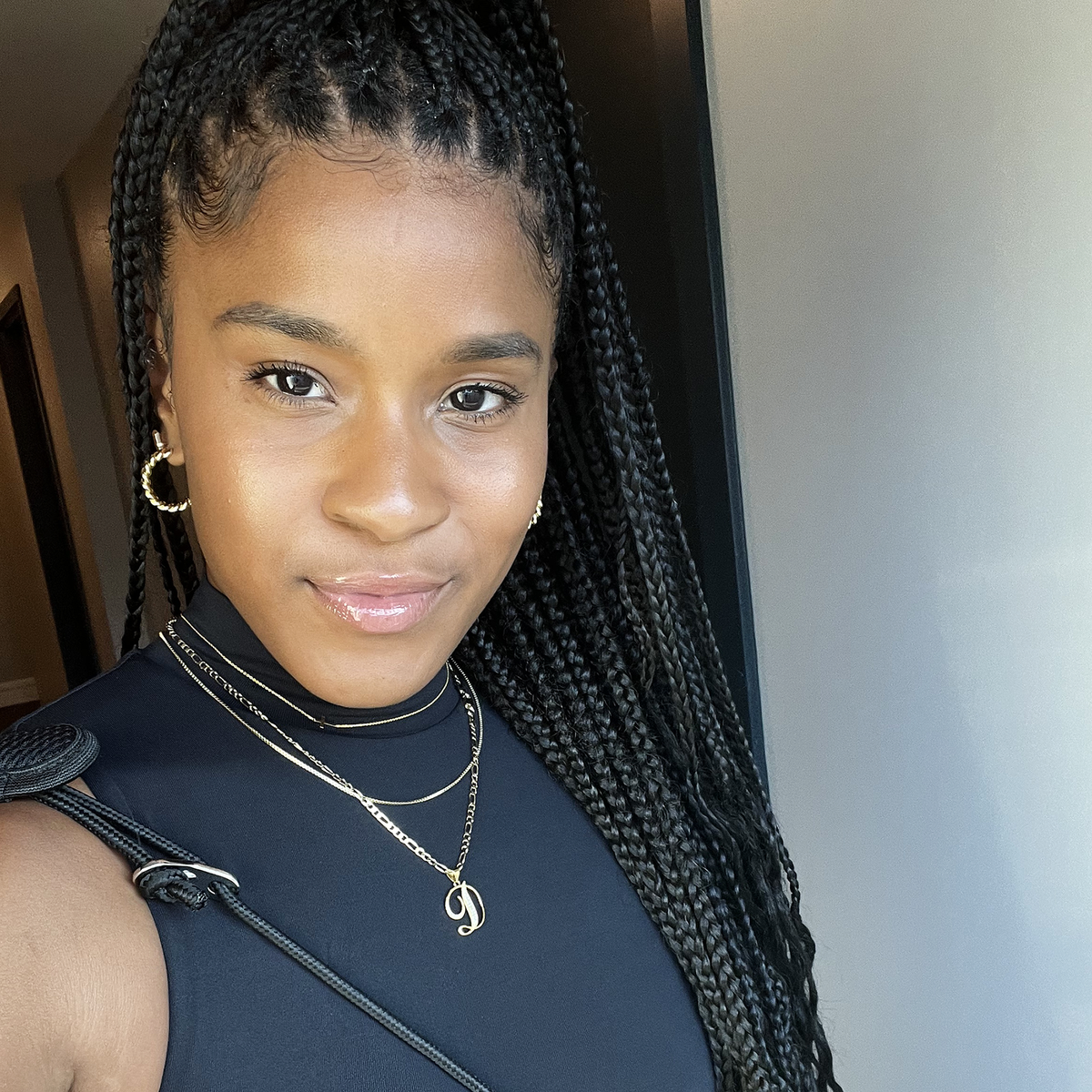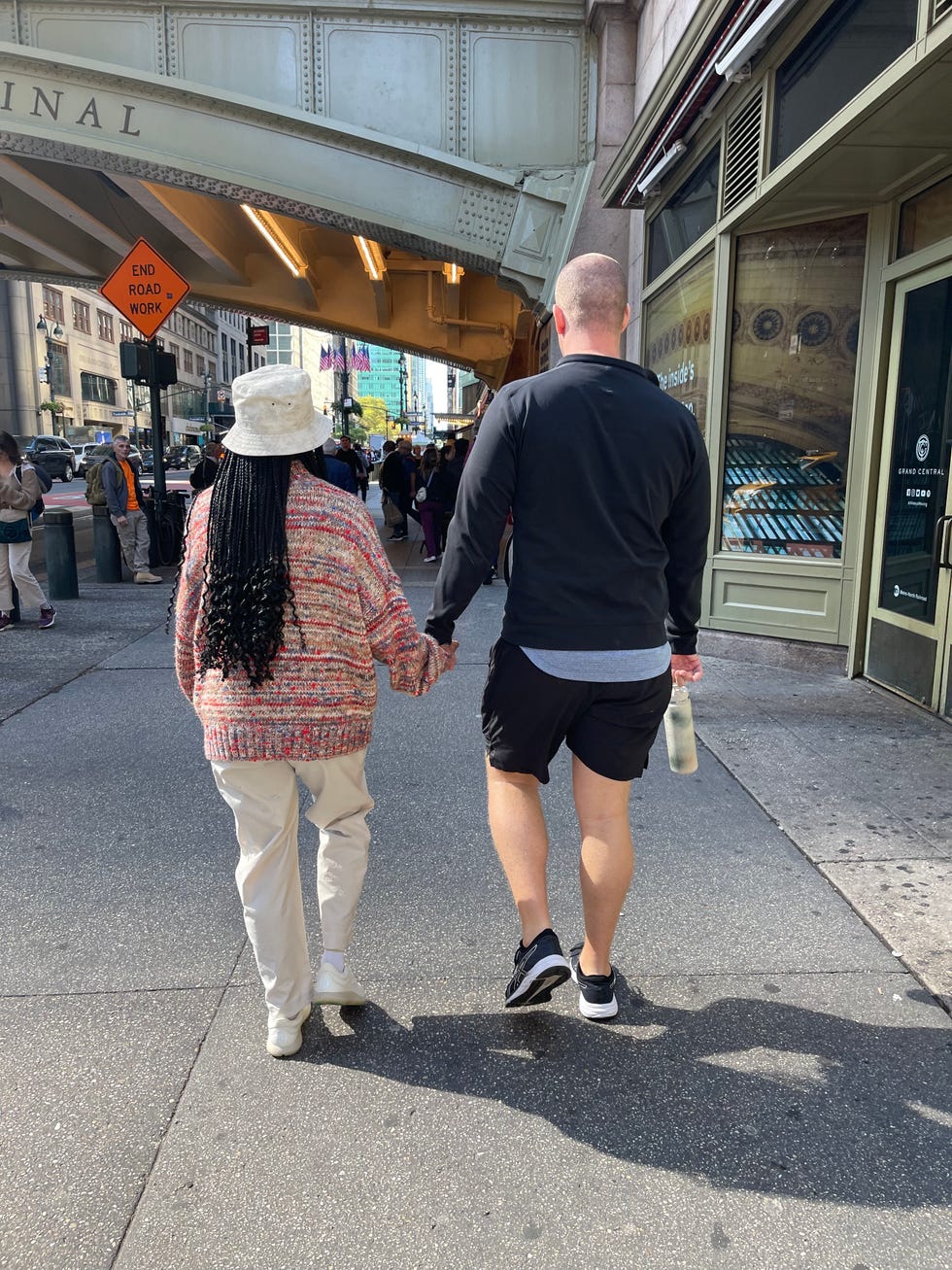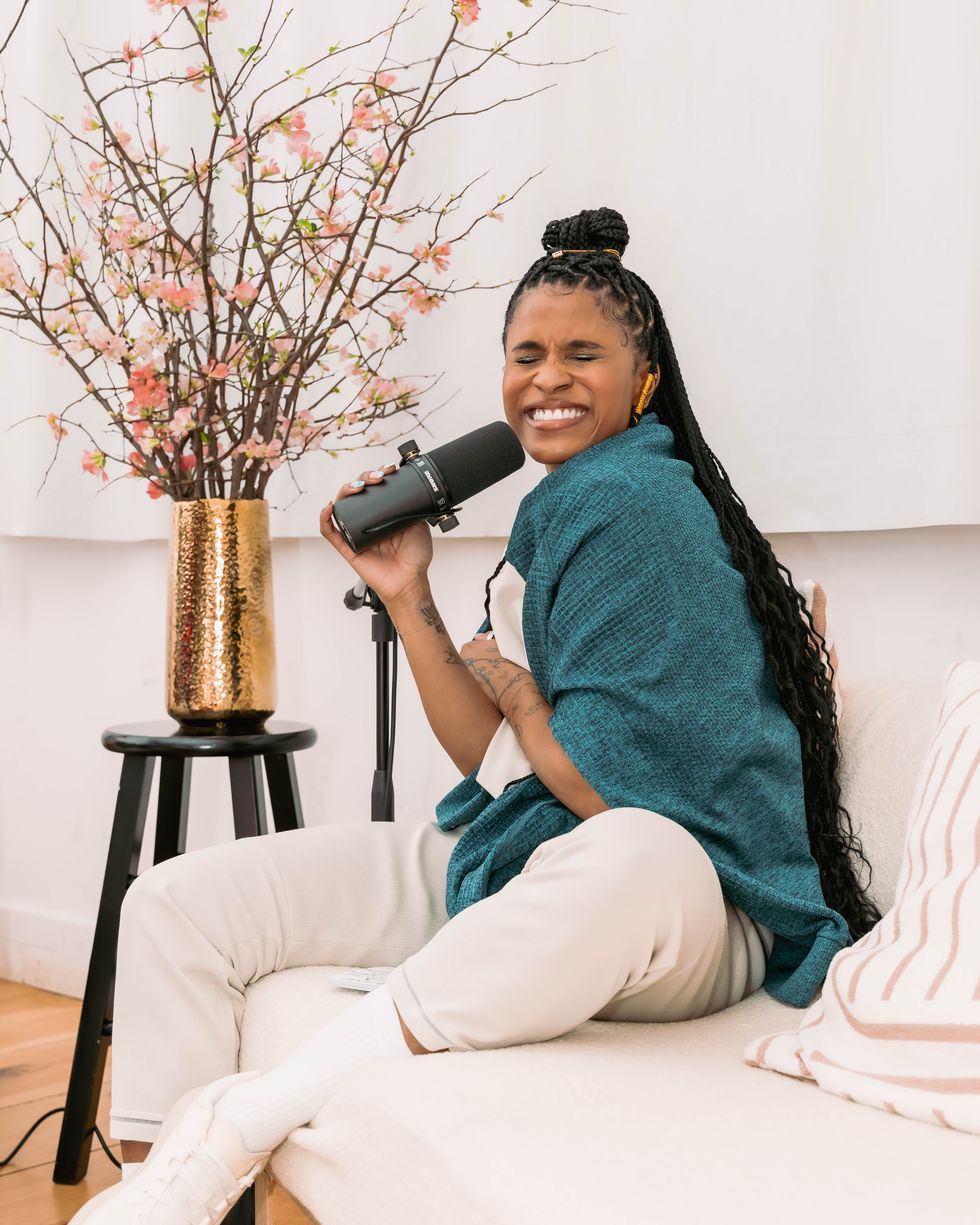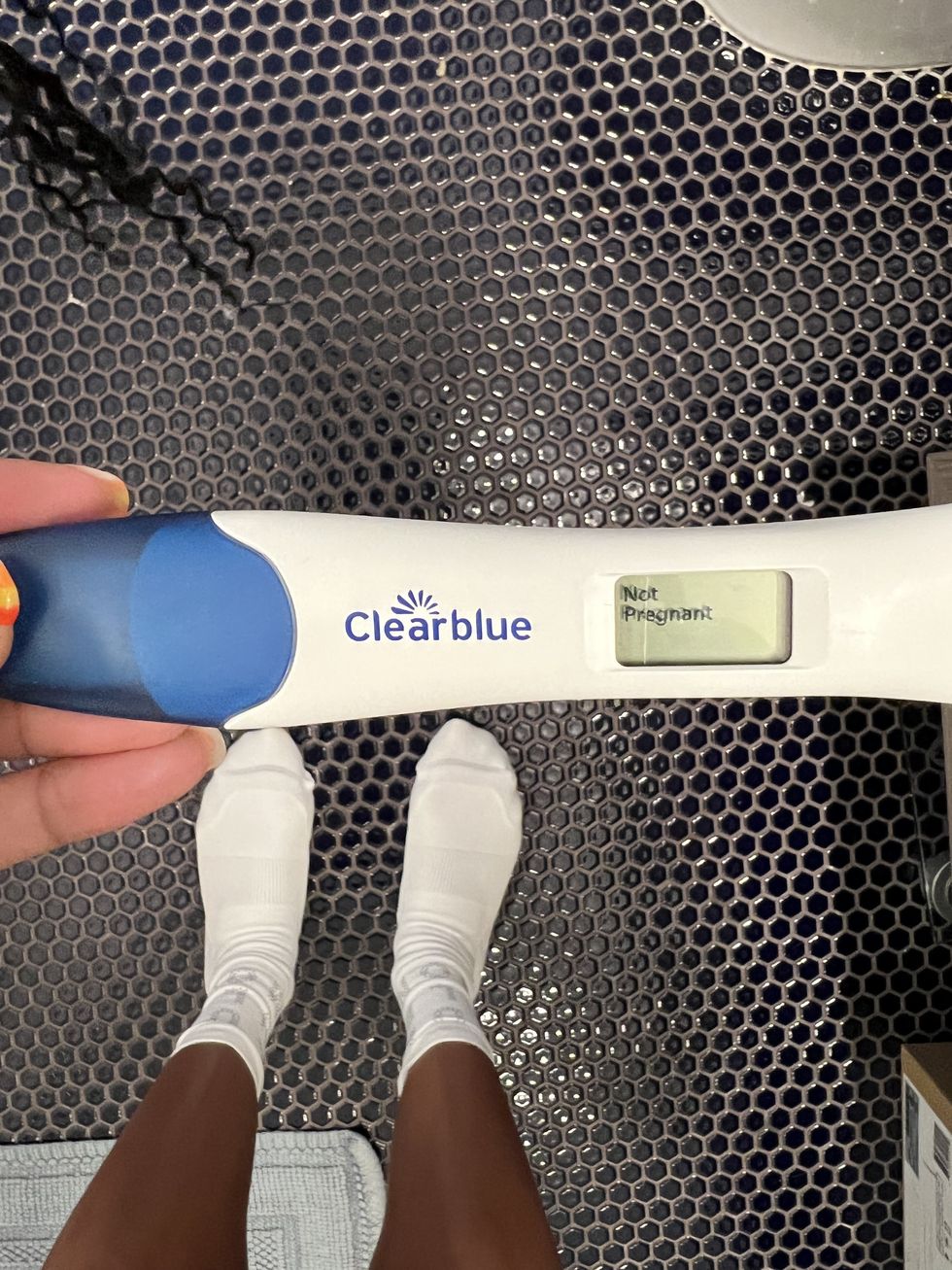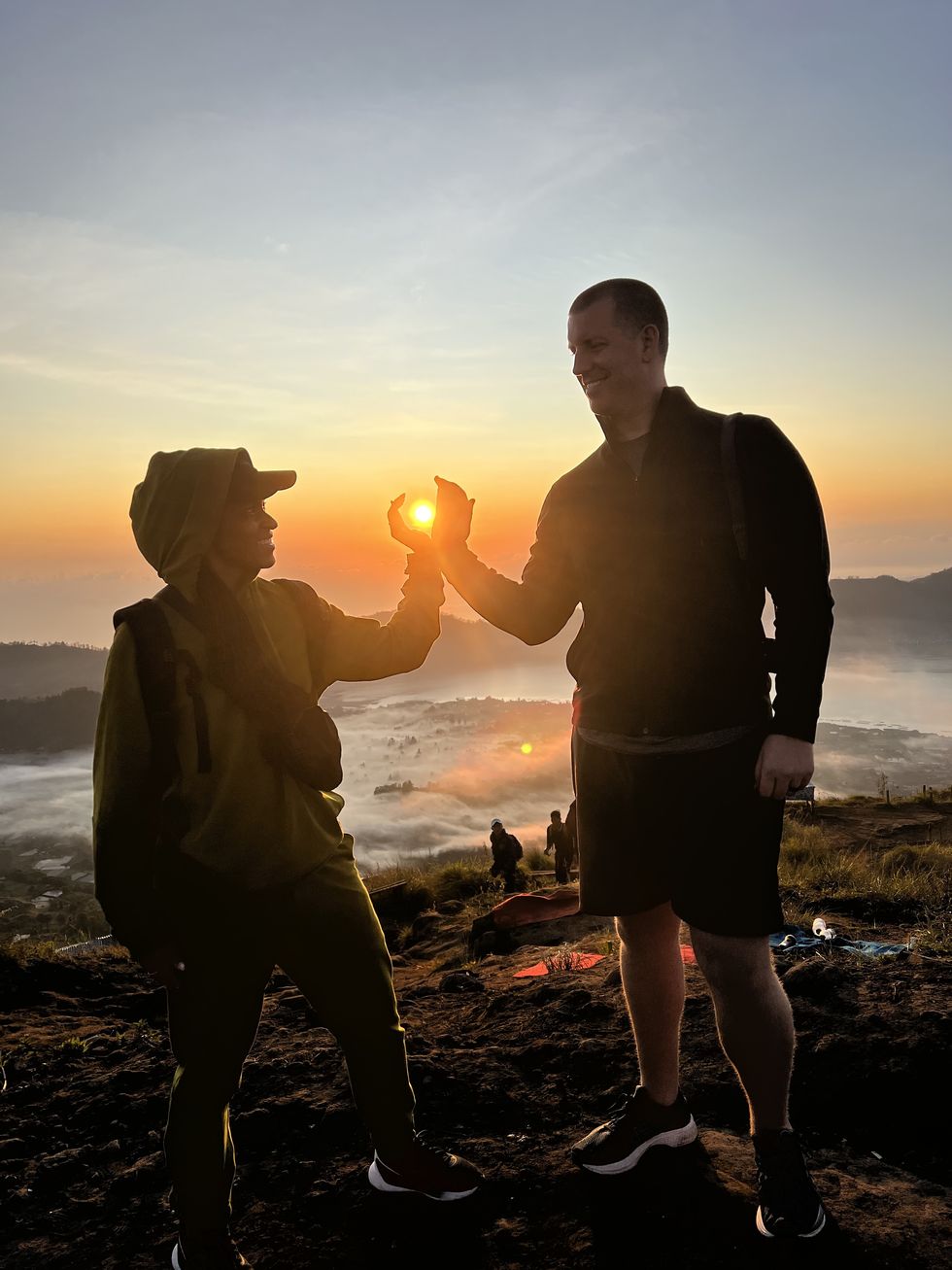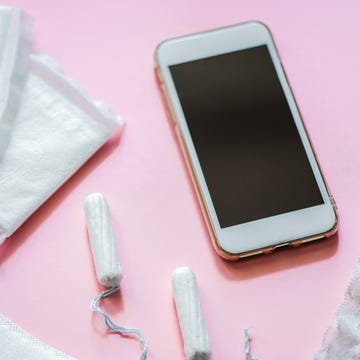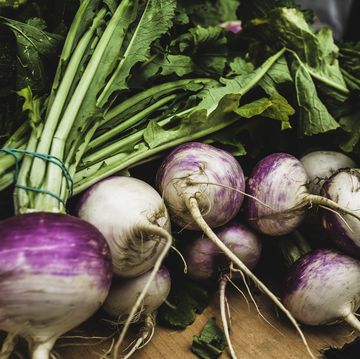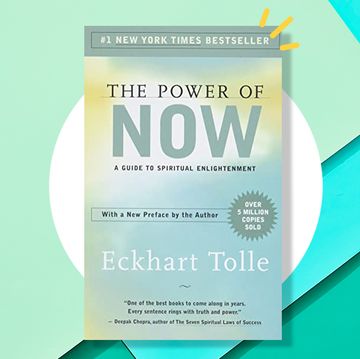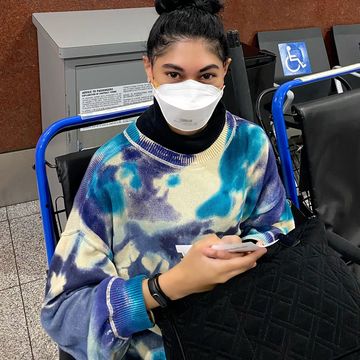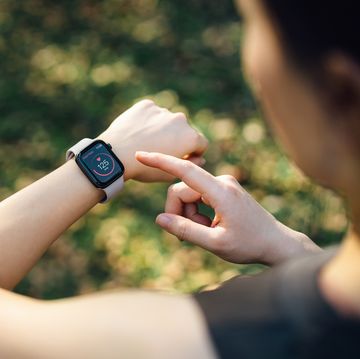Deja Riley Izydorczyk is a global ambassador and studio trainer for Lululemon. She lives in Brooklyn with her husband, Jimmy. You can follow her fertility journey on Instagram.
I never thought I would struggle with infertility, especially since my mom has five kids and my dad has nine. And I really never thought I would find myself sitting in a shower, running the bathroom fan to muffle my crying, trying to process the news of my best friend’s pregnancy a year after my own miscarriage.
But that’s where I was in January. When my friend first told me the news, I felt elated for her. I also felt a deep sorrow for myself. I was in shock for a minute after she told me. I kept thinking, I’m going to have to watch her grow life in her body when I still can’t do it for myself. It was bittersweet; that’s the best word I can think of for the duality of it all.
More From Women's Health

I told her about the conflicting feelings I was having at that moment and then locked myself in the bathroom to film myself trying to process the information. I didn’t want to forget what I was feeling. Later, I got her and her partner’s permission to share the video online, where I’d been documenting my two-year journey with trying to conceive. They seemed supportive, so I posted it, hoping it would help other women feel less alone.
It’s been difficult for me to navigate our friendship in the aftermath. As much as that hurts, I still think it’s important for women to see they’re not the only ones struggling to get through those moments in the midst of their own infertility. And I know it resonated: One Instagram commenter said, “Thank you for sharing such a delicate and raw moment. 6 months ago I had this almost exact feeling pour over me…I didn’t know how to describe or even deal with the feeling. But I know I’m not alone.”
An infertility support group inspired me to share my journey to becoming a mother.
My husband, Jimmy, and I started trying for a baby in January 2021, but after six months with no results, we realized we were facing fertility challenges. The next steps felt daunting. My family and friends never talked about infertility, so I felt completely unprepared to deal with it.
My experience isn’t uncommon. While Black women are more likely than white women to experience infertility, their communities are less likely to talk about infertility struggles, so feeling alone and isolated is often the outcome. And unfortunately, when Black and Latina women seek infertility care, they face racial disparities and have less successful outcomes.
After getting all the tests, I was told I was dealing with “unexplained infertility” and advised to just keep trying. Then, in July 2021, I got pregnant. It was a moment of renewal where I could see the light at the end of the tunnel. We were riding high on a cloud of happiness, so excited to bring this new bundle into the world.
Two months later, I suffered a devastating miscarriage.
I really beat myself up. I asked myself, “What’s wrong with me? What’s wrong with my body?”
Our doctors said that a subchorionic hematoma (or bleeding under one of the membranes that surrounds the embryo) may have led to the miscarriage, but no one had any solid answers. I cried for a week straight.
I realized I needed more support than my family and friends could offer.
About a year after the miscarriage, in November 2022, I connected with an online infertility support group called Fertility Rally. It has 500 active members nationwide, and more than 2,500 women have utilized the group since it launched in 2020.
The group meets a few times weekly, and I attend on Sundays. Its tagline is “Worst club. Best members.” Everything discussed is strictly confidential. But at first, I was a little in my head about being vulnerable in the group. Over time, it got easier.
The support I felt from the group encouraged me to be more vulnerable and open with loved ones and in the public eye about what I was going through, like when I vlogged my reaction to my friend’s pregnancy news.
I’ve learned that if you haven’t personally experienced infertility, you can’t necessarily empathize and oftentimes can’t even sympathize with the person going through it. Talking with the group helped me to have the patience to educate friends and family who didn’t understand, and hearing stories from other women made me feel less isolated in my experience, especially after the miscarriage.
Other women were having experiences just like mine, as well as ones that sounded far worse than what I was going through. I could finally see that I didn’t have to blame myself. We all desire to feel heard, seen, loved, and supported. And this group provides all of that for me.
My support group also helped me move forward with IVF in December.
Throughout this journey, we’ve been advised to try IVF. We wanted to try intrauterine insemination (IUI) first because it’s less expensive and invasive. IUI is a fertility treatment in which sperm is placed inside a uterus to increase the chances of fertilization. We did four rounds that weren’t successful.
I didn’t feel my doctor (an older, white man) was very sensitive to my circumstances. I feel like he was pushing us toward IVF before we were ready.
Unfortunately, this is a relatable experience for many Black women. In a study on perceptions of infertility in the Midwest, for example, close to half of the Black participants reported that their physician did not understand their cultural background when they sought fertility treatment. I was determined to seek out a Black woman or a woman of color to treat me moving forward.
Thankfully, I found myself at Kindbody, under the care of a Black woman. She made me feel safe like the folks at Fertility Rally. It was another reminder that finding the right support and team makes all the difference on an emotional journey like this.
Hearing from other women in the support group about their IVF experiences and having a doctor who looks like me made me feel more comfortable jumping to that step. That first round of IVF wasn’t successful, so now I’m taking a break from fertility treatments to enjoy life for a bit.
My support group has helped me stay thankful during this stage. I try to think of IVF as standing for I’m Very Fortunate. Meditating on positive affirmations helps me through the low moments.
This whole journey—both the trials and triumphs—has only deepened my desire to be a mother.
It’s helped me to develop this great sense of compassion that will make me an even better parent someday. Having a teammate in Jimmy—and a whole team in my support group—lets me know that even in the tough moments, we’re doing it together. And we will be able to celebrate the victories together too.
This article is part of Women’s Health’s coverage of National Infertility Awareness Week (April 23–29, 2023).
